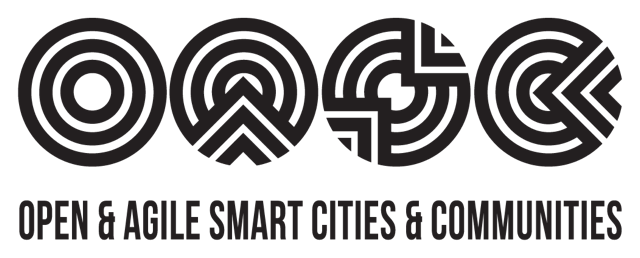Sophia Antipolis, 24 January 2019 – Press Release by ETSI.
The ETSI Industry Specification Group for cross-cutting Context Information Management (ISG CIM) has just released its main specification GS CIM 009 for NGSI-LD API, particularly targeting Smart City applications and government services (use cases available in GR CIM 002).
This culminates two years of work, including industry feedback on the preliminary release made in April 2018. The name “NGSI-LD” refers to early work of the Open Mobile Alliance in defining high-level NGSI interfaces as well as advances from the Linked Data community.
A significant amount of the data collected never gets leveraged because of the challenges in interpreting data models and API standards for utilizing the data across platforms. NGSI-LD leverages the experiences of the developer community associated with a large number of FIWARE NGSIv2 projects, along with the Linked Data communities, targeting both as natural early adopters of this new ETSI specification.
The NGSI-LD API specification builds on widespread data models of graph-databases, known as Property Graphs, so that all kinds of “things” including people, city boundaries, buildings, rooms, cars, equipment can be readily referenced and described, together with their relationships. Previously the typical Smart City applications such as smart parking could direct drivers to a parking lot with available parking slots, but the relationships such as “car X belongs to Hospital X” and “Hospital-X vehicles may use emergency services parking” are only recorded using some proprietary properties which are currently hard to quickly share across new applications. NGSI-LD is designed to allow cross-domain sharing and to facilitate restrictions based on privacy (GDPR), security or licensing concerns.
“Smart cities will be the first ones to benefit from all this work, as the NGSI-LD API is used to ‘glue together’ existing databases across the many city services for citizens” states Dr. Lindsay Frost, Chairman of ETSI ISG CIM. “The NGSI-LD has already been referenced by many EC research and innovation programmes, such as EIP-SCC-01 Lighthouse and the SynchroniCity project. New use cases in Smart Agriculture and Smart Industry are under development” he adds.
The new specification defines a simple way to send or request data, using a serialization format (JSON-LD) which is very familiar to many developers so that rapid adoption is facilitated. The important feature is that data and its context such as the meaning, relationships, source or licensing of that data, etc. are transmitted together. The approach can directly re-use work on matching terminology for things and services which is ongoing in multinational collaboration with many standards organizations. Interworking of NGSI-LD with the existing oneM2M platform and standards is already partially possible and will be refined further in future releases.
“As city representatives, we will have the opportunity to experiment with this new NGSI-LD very soon in Bordeaux. Thanks to the Open Call launched in the framework of the H2020 Synchronicity Large Scale Pilot, we will provide data access to local startups. It will be the first implementation of NGSI-LD together with a oneM2M compliant smart city architecture!” says Christophe Colinet, Vice-Chair of ETSI ISG CIM and smart city projects’ leader in Bordeaux, France.
More information is available on www.etsi.org

